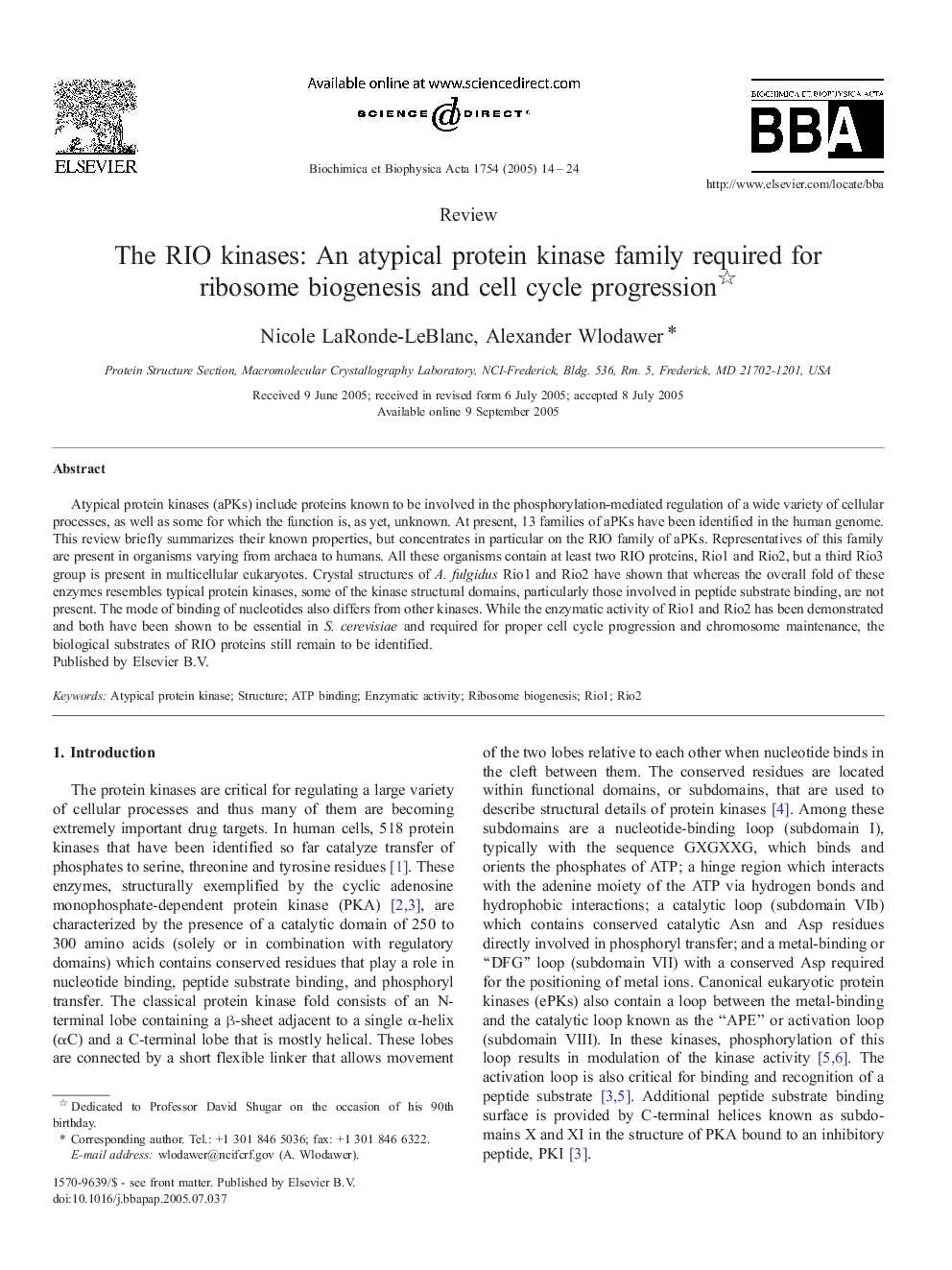| Article ID | Journal | Published Year | Pages | File Type |
|---|---|---|---|---|
| 9745069 | Biochimica et Biophysica Acta (BBA) - Proteins and Proteomics | 2005 | 11 Pages |
Abstract
Atypical protein kinases (aPKs) include proteins known to be involved in the phosphorylation-mediated regulation of a wide variety of cellular processes, as well as some for which the function is, as yet, unknown. At present, 13 families of aPKs have been identified in the human genome. This review briefly summarizes their known properties, but concentrates in particular on the RIO family of aPKs. Representatives of this family are present in organisms varying from archaea to humans. All these organisms contain at least two RIO proteins, Rio1 and Rio2, but a third Rio3 group is present in multicellular eukaryotes. Crystal structures of A. fulgidus Rio1 and Rio2 have shown that whereas the overall fold of these enzymes resembles typical protein kinases, some of the kinase structural domains, particularly those involved in peptide substrate binding, are not present. The mode of binding of nucleotides also differs from other kinases. While the enzymatic activity of Rio1 and Rio2 has been demonstrated and both have been shown to be essential in S. cerevisiae and required for proper cell cycle progression and chromosome maintenance, the biological substrates of RIO proteins still remain to be identified.
Related Topics
Physical Sciences and Engineering
Chemistry
Analytical Chemistry
Authors
Nicole LaRonde-LeBlanc, Alexander Wlodawer,
